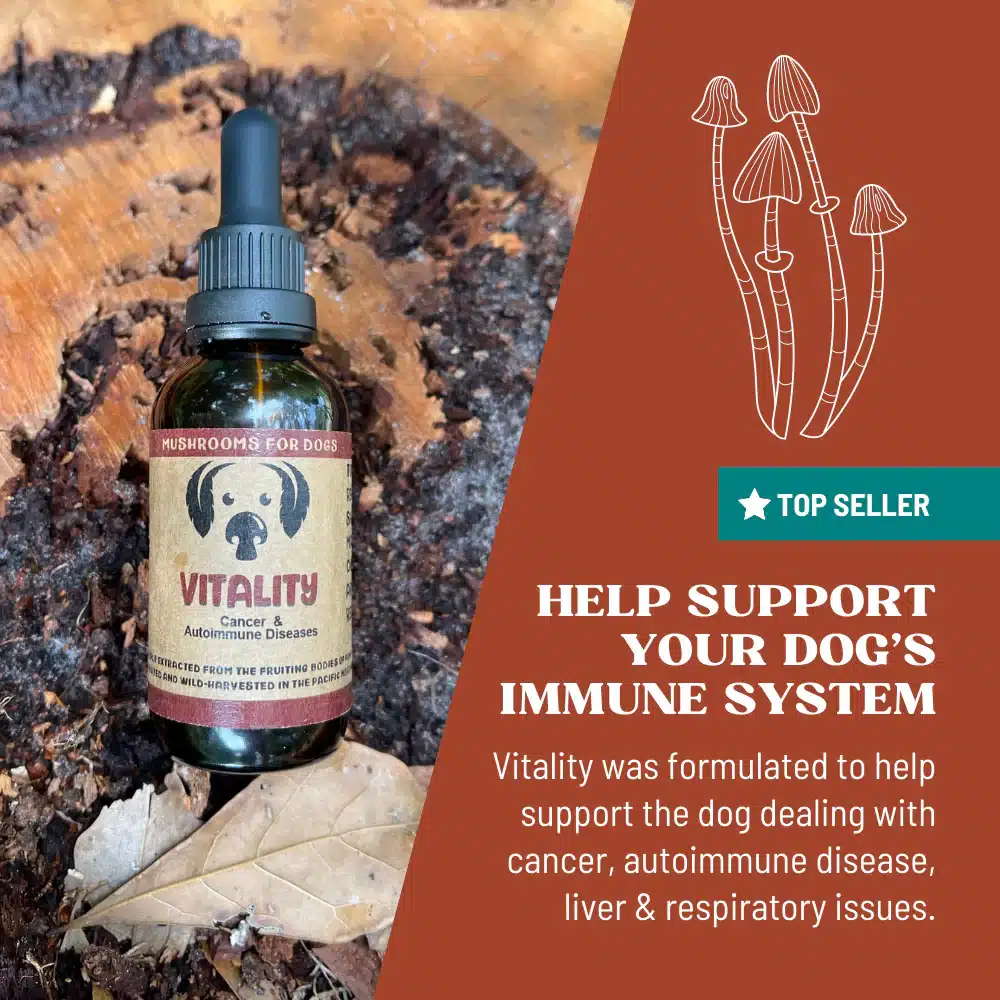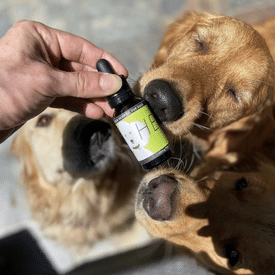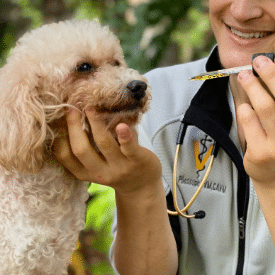CBD for Bladder Cancer in Dogs

Recently, the extent of research on cannabis’ effect on cancer cells is only growing. New research showing the benefits continues to emerge. New research is just the start of what could be a groundbreaking connection between cannabis and cancer treatments⁴. Promising new research investigates the use of CBD for bladder cancer in dogs.
Table of Contents
What is Bladder Cancer?
Cancer can affect all parts of the urinary tract, including kidneys, bladder, ureters, prostate, and urethra. However, bladder cancer is the most common diagnosis when dealing with cancer of the urinary tract in dogs. Although, when compared to tumors in other parts of the body, bladder cancer is still relatively uncommon, accounting for only 1-2 percent of all cancers in dogs.
Invasive transitional cell carcinoma (TCC) of intermediate to high grade is the most common bladder cancer in dogs. TCC is a cancerous tumor that invades the bladder wall’s deeper layers, including the bladder muscles. TCC in dogs can also spread to lymph nodes and other organs.
While bladder cancer can affect any breed of dog, it is more common in Scottish Terriers than in other breeds, suggesting that a hereditary predisposition may be a risk factor. It’s also most commonly diagnosed in middle-aged to senior female dogs. Although the precise cause of bladder cancer in dogs is uncertain, there appears to be a correlation between a genetic predisposition and environmental factors, such as pesticides and insecticides.
Symptoms of Bladder Cancer in Dogs
Early signs of bladder cancer include straining to urinate, painful urination, increased urination and incontinence, and blood in the urine. These symptoms increase in severity as the cancer progresses and can become life-threatening if not closely monitored and staged³. In the later stages of bladder cancer, some dogs experience lameness due to cancer spreading to the dog’s bones or other organs. A definitive diagnosis is important since things like a UTI (urinary tract infection) can mimic the early symptoms of bladder cancer, and obviously, UTIs are less serious (yet still very important to address) than bladder cancer.
Common symptoms can include:
- Frequent urination, in small amounts
- Difficulty urinating
- Loss of bladder control, More accidents in the house
- Discoloration or blood in the urine
- Urinary tract infections, especially reoccurring or persistent UTIs
Generally speaking, bladder cancer is harder to diagnose early, and by the time symptoms develop, there is already disease progression. Using proactive measures to prevent this cancer, or any cancer for that measure is important. Using full-spectrum hemp extract as part of your dog’s nutrition protocol, which includes a balanced and fresh whole food diet, can help support the body as a whole and protect against many inflammatory issues, including cancer.
Related: Natural Remedies for UTIs in Dogs
CBD for Bladder Cancer: New Research
In a promising study conducted in Canada², research was conducted to investigate CBD’s ability to treat canine urothelial carcinoma (bladder cancer). The study analyzed the difference in efficacy between the traditional standalone treatment, chemotherapy, versus chemotherapy and CBD together. The results showed that CBD for bladder cancer not only reduced cell viability and induced cell death in the canine urothelial cells on its own but worked even better when combined with chemotherapy.
This study was done in vitro, which means it was done outside of a living organism. Further studies in vivo (within a living organism) are warranted so that we can investigate how exactly this combination will be most successfully implemented in a clinical setting, and also be able to transfer this into the human clinical setting. However, due to the nature of cannabis, in terms of its continued vilification by governments domestically and across the globe, researchers are limited in their scope. Until cannabis is de/rescheduled on the federal level, research cannot be done on living organisms (such as clinical trials on people). For now, as much preclinical work is being done as possible to create the foundation for clinical research when cannabis is descheduled federally.

The extent of the research being done on cannabis’ effect on cancer cells is only growing, and new research showing the benefits continues to emerge. As time goes on, and the demonization of cannabis lessens, more research is done proving cannabis (CBD, CBN, THC, and its other compounds) has a huge effect on cancer cells and improves existing cancer treatments. We already know that CBD triggers apoptosis, stops metastasis, and has a positive effect when used with chemotherapy, but new research is constantly emerging regarding specific cancers and cannabis therapy.
Related: New Study on CBD for Cancer and CBD Oil for Dogs with Cancer
Mushrooms for Bladder Cancer: New Research on Chaga Mushrooms
Recent research has explored the potential benefits of Chaga mushrooms for bladder cancer in dogs. The study conducted on dog bladder cancer organoids (DBCO) demonstrated that Chaga extract can inhibit cell viability, induce apoptosis, and arrest the cell cycle in a concentration-dependent manner. It also reduced the expression of bladder cancer stem cell markers and inhibited proliferation-related signals. Furthermore, combining Chaga with conventional anti-cancer drugs enhanced their effectiveness. In animal experiments, Chaga administration led to a decrease in tumor growth and weight, suggesting its therapeutic potential. These findings highlight Chaga mushrooms as a promising natural supplement that could complement adjuvant chemotherapy, reduce adverse effects, and potentially limit recurrence and metastasis in dogs with bladder cancer.

References
- ¹Hamad, Hussein, and Birgitte Brinkmann Olsen. “Cannabidiol Induces Cell Death in Human Lung Cancer Cells and Cancer Stem Cells.” MDPI, 17 November 2021
- ²Inkol, Jodan M., et al. “Combination therapy with cannabidiol and chemotherapeutics in canine urothelial carcinoma cells.” PLOS, 5 August 2021
- ³NC State Veterinary Hospital. “Canine Urothelial Carcinoma.” NC State College of Veterinary Medicine
- ⁴Seltenrich, Nate. “Encouraging Cancer Research.” Project CBD, 1 January 2022















